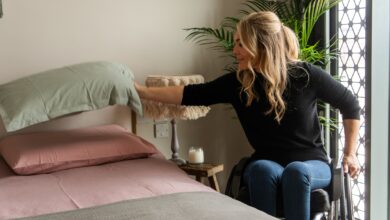Leading The Charge: Making The Case For Why Entrepreneurs Need To Introduce Innovation In The Menopause Care Market
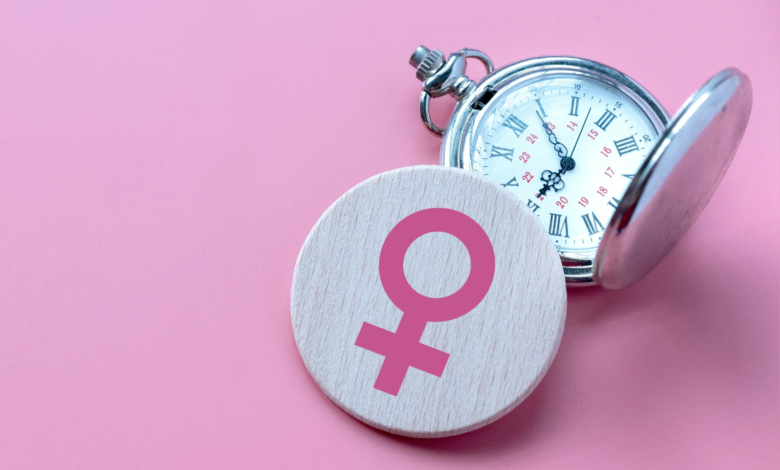
Opinions expressed by Entrepreneur contributors are their own.
You’re reading Entrepreneur Middle East, an international franchise of Entrepreneur Media.
Menopause, which is defined today as a natural phase of a woman’s aging process during which she does not have her regular menstrual period for 12 consecutive months, is a term that was originally coined in the year 1821 by French physician Charles Pierre Louis De Gardanne. But while a little over two centuries have passed since the term came into being, global healthcare allocated to menopause has been wrought with misdiagnoses, misinformation, and very little innovation.
According to Ann Marie McQueen, a UAE-based journalist and founder of HotFlash, a global educational platform that offers accessible information on menopause and perimenopause (the natural period of transition that begins 10-12 years before menopause), the sorry state of affairs can be drawn to the general indifference showcased toward this stage of life in women. “I think innovation in the menopause market has been stalled because the demographic hasn’t been taken seriously,” McQueen says. “Some 1.1 billion women will go through menopause globally by 2025, and billions more on either side are dealing with either perimenopause or postmenopause, which can bring their own challenges. Research has been stalled as well. In the PubMed [a free resource that offers the latest biomedical and life sciences literature] database of all clinical studies, there are 1.1 million studies on pregnancy, and under 100,000 on menopause, something all women go through. When it comes to perimenopause, there are less than 10,000! All this adds up to far fewer solutions for us than we need to cope with this transition.”
Ann Marie McQueen is a UAE-based journalist with over 30 years of experience in the field, as well as the founder of HotFlash, a global educational platform that offers accessible information on menopause and perimenopause. Source: HotFlash
Now, the answer to achieving innovation in any of today’s business sectors often stems from within the realms of entrepreneurship. Consider the implications of this in a country like the UAE, that has seen a flurry of startups within healthcare and digital health- with the latter market valued at US$9.3 million in 2023, and expected to grow at a compounded annual growth rate (CAGR) of 23.3% from 2024 to 2030, as per India and US-based market research and consulting firm Grand View Research.
All of this thus raises a pertinent question: is there a significant potential for entrepreneurs in the UAE to tap into the local menopause care market? For Sophie Smith, founder of UAE-based femtech startup Nabta Health, the answer is in the affirmative. “Like the rest of the globe, due to a historic lack of focus on menopause, from research, to healthcare delivery, to workplace adaptation, and even training for medical professionals, the UAE and wider MENA region present a sizable and largely untapped opportunity for entrepreneurs in menopause care- whether digital, traditional, or hybrid,” Smith says. “If you assume the female population of the UAE to be roughly five million women, the average life expectancy to be 80 years old, and the median age of menopause to be 48 years old, that could mean as many as 3.3 million women (or 66% of the UAE’s female population), who are either perimenopausal or menopausal. The implications of this are huge. Arguably, one of the most significant determinants of a woman’s health span (her healthy years of life, as opposed to total life expectancy), is how she navigates perimenopause, and the impact of the associated hormonal changes on everything from bone density, to muscle mass, to pelvic health. Innovations in menopause care are, therefore, key to extending a woman’s health span and enabling her to achieve her potential wherever she is- whether at work, at home, or on the move.”
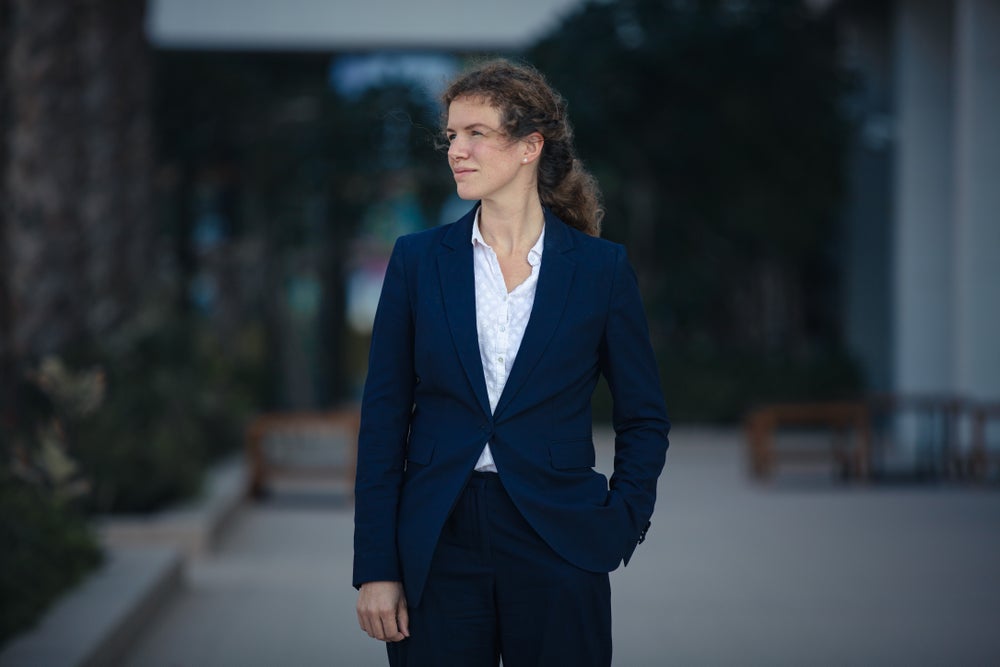 Sophie Smith is the founder of Nabta Health, a UAE-based femtech startup that was launched in 2017 as a decentralised, patient-centric healthcare platform for women in emerging markets. Source: Nabta Health
Sophie Smith is the founder of Nabta Health, a UAE-based femtech startup that was launched in 2017 as a decentralised, patient-centric healthcare platform for women in emerging markets. Source: Nabta Health
Indeed, in a global menopause market that was valued at $15.4 billion in 2021 and is projected to reach $24.4 billion by 2030 -as per another report by Grand View Research– one might expect innovative solutions to drive this anticipated growth. But the aforementioned issue of very little research continues to be major bottleneck to achieving such innovation in this field. Perhaps the biggest example of a research-related growth impediment in the history of menopausal care has been the case of Premarin- a hormone replacement therapy (HRT) pill launched by US-based Wyeth Pharmaceuticals in 1942. Found to be a highly effective drug in treating menopausal symptoms (which can range from hot flashes, mood changes, and thinning hair to osteoporosis and dry skin), Premarin’s use continues to be marred with inconsistent information due to a research paper that came out in 2002- a medical fallacy whose immediate repercussions were experienced firsthand by Dr. Fiona Rennie, Family Medicine Consultant at Dubai-based Genesis Healthcare Center.
“Part of the reason that doctors aren’t trained in menopause is because, you know, 10-20 years ago people weren’t prescribing much HRT, because there was a very flawed study that came out of the US in 2002 that put everyone off hormone treatment,” Dr. Rennie reveals. “So, I was prescribing HRT in the 1990s, but then that study came out, and everyone -including me- stopped prescribing for a while. And then that study was disproved! The study said that HRT can cause heart disease and breast cancer, but we know now that that’s not true. The problem is that a lot of doctors have not caught up with the new developments, and they are still telling women that hormone replacement is dangerous, and just to push through with their menopause symptoms. So, the problem lies in lack of training and lack of interest in training. And there are only a few of us in the UAE that actually know what we’re doing with HRT, and how to correctly prescribe it.”
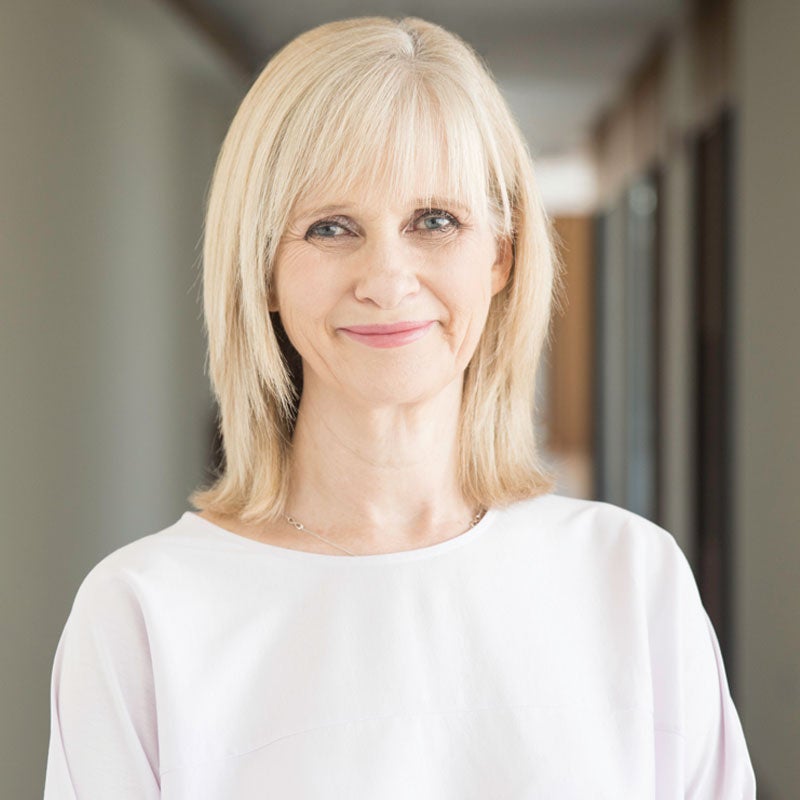 Dr. Fiona Rennie is a Family Medicine Consultant at the UAE-based Genesis Healthcare Center who has spent nearly two decades in the country working on perimenopause and menopause-related health issues. Source: Genesis Healthcare Center
Dr. Fiona Rennie is a Family Medicine Consultant at the UAE-based Genesis Healthcare Center who has spent nearly two decades in the country working on perimenopause and menopause-related health issues. Source: Genesis Healthcare Center
It is here that Dr. Rennie laments how such dissemination of misinformation has led to continued misdiagnosis of perimenopausal and menopausal women- a claim that is supported by a 2023 report by digital health platform Elektra Health, which also notes how women with menopause incur 45% more healthcare costs each year, due to lack of proper diagnosis, than their non-menopausal counterparts. But Dr. Rennie is quick to point out that improper research isn’t the only area of blame- subsequent inability of medical providers to keep up with the latest research and advancements are just as responsible for the lack of menopause-related healthcare. “A lot of the doctors aren’t particularly interested in menopause,” Dr. Rennie says. “And if it’s not something you’re interested in, then it’s not something you’re going to do extra training in. Now, at least menopause is understood by doctors, but, unfortunately, perimenopause is not. Menopause is obviously diagnosed when someone’s gone a year without a menstrual period. But in the 10 years leading up to it, women can have lots of problems with sleep, anxiety, joint pain, irritability, feeling emotional- and it’s often dismissed by doctors as depression or anxiety, and they’re given antidepressants when actually they need hormone replacement therapy (HRT).”
In an almost direct follow-up to Dr. Rennie’s observations, HotFlash’s founder McQueen reveals that this phenomenon of disinterest among medical professionals has, in fact, been named the “menopause care gap” by Stephanie Faubion, medical director of The Menopause Society in North America. “This term refers to the fact that most doctors don’t learn anything about menopause in medical school, and even [specialists in] obstetrics and gynaecology (OB/GYN) only spend a few hours on it,” she adds. However, according to Dr. Jennifer Kasirsky, the former Head of Obstetrics at UAE-based Mediclinic Middle East, who is currently working in OB/GYN with a specialty in menopause at the US-based Ob Hospitalist Group, this glaring dearth in awareness can prove to be a great space for healthtech entrepreneurs to tap into.
“In general, medical providers are not well educated with regard to menopause and perimenopause, and medical training -especially in gynecology and family medicine- tends to concentrate on the reproductive (or childbearing) years,” Dr. Kasirsky says. “So, while this does denote a lack of customer centricity, this is not unique to the UAE. Startups can thus help to educate doctors and fill in the training gaps. Sponsoring continuing medical education would be a great help! There is also a definite lack of reliable HRT being imported into the country- working to import HRT would be a huge boom to the menopausal market. Creating a menopausal and perimenopausal centered clinic would be great too. I am actually partnering with Nabta Health [to create such a clinic], and hope to see this come to fruition.”
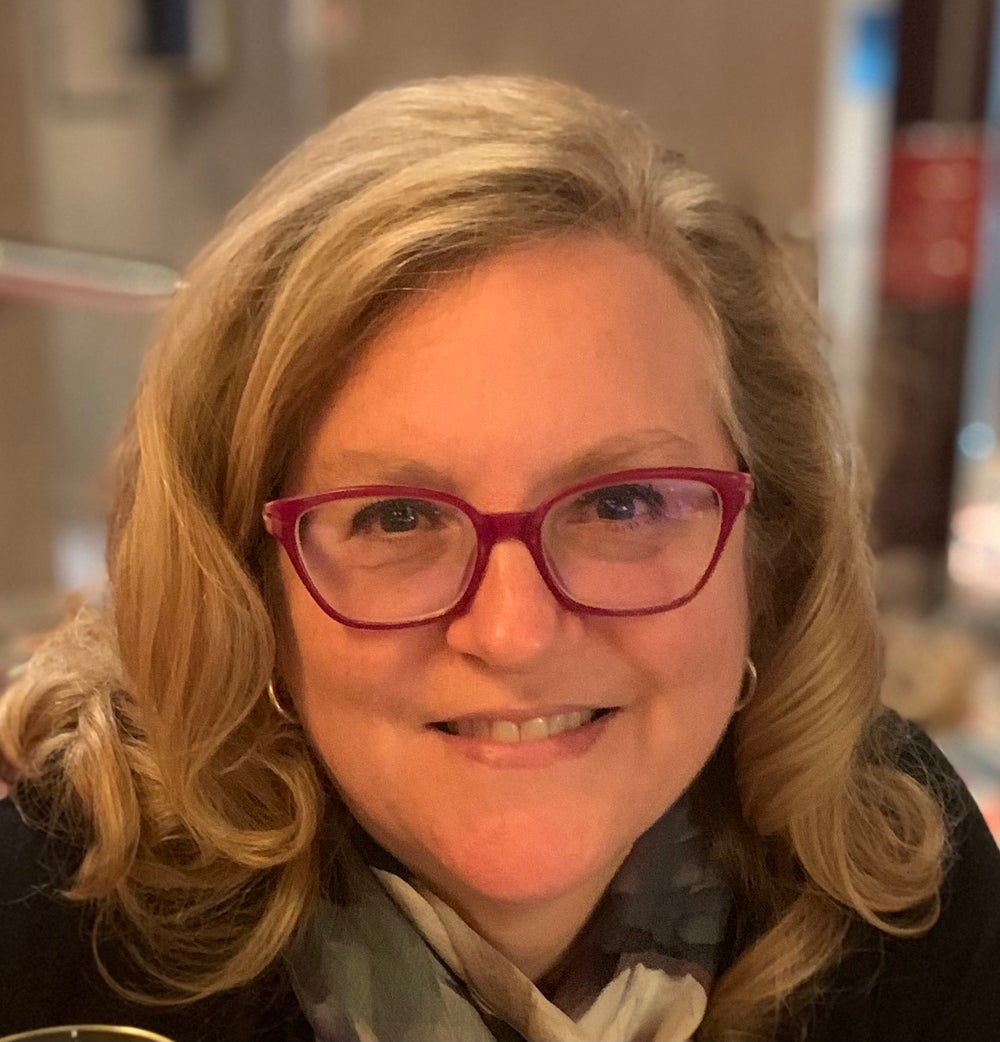 Dr. Jennifer Kasirsky is the former Head of Obstetrics at UAE-based Mediclinic Middle East, who is currently working in OB/GYN with a specialty in menopause at the US-based Ob Hospitalist Group. Source: Dr. Jennifer Kasirsky
Dr. Jennifer Kasirsky is the former Head of Obstetrics at UAE-based Mediclinic Middle East, who is currently working in OB/GYN with a specialty in menopause at the US-based Ob Hospitalist Group. Source: Dr. Jennifer Kasirsky
Now, Dr. Kasirsky’s revelation that she has partnered up with Smith’s startup Nabta Health to create a clinic focused solely on perimenopause and menopause will certainly be seen as a welcome move by many in the UAE. Should this collaboration turn successful, it would mark an addition to the few similar initiatives in the UAE, which includes the capital city’s first dedicated menopause clinic that was launched in 2022 by the Abu Dhabi Health Services (SEHA). And the possibility of having more such menopause-focused centers is something that Genesis Healthcare Center’s Dr. Rennie is betting on. “Well, honestly, just having more doctors that know what they’re doing [is needed],” Dr. Rennie says. “An example would be someone like Dr. Louise Newson, founder of the Newson Health Menopause and Wellbeing Center in the UK, who’s got 120 doctors working for her just for menopause! And the thing about medicine is it’s one on one! Menopause care is only as good as the doctor or the nurse or whoever is delivering it.”
Dr. Rennie’s statements here hold additional significance owing to the simple fact that menopause and perimenopause do not manifest in the same way in different women. Entrepreneurs moving into menopausal care in the UAE will thus have to consider curating solutions that are wide-ranging but also personalized. Sharon James, a women’s wellness and menopause coach who runs her eponymous coaching center, Sharon James Coaching, in the UAE, agrees with this notion, and it’s the first piece of advice she’d give entrepreneurs wanting to explore this sector. “First and foremost, it’s essential for entrepreneurs to grasp the profound variability in how women experience menopause,” James says. “The journey through menopause is incredibly personal, with each woman facing her unique set of symptoms and challenges. Recognizing this diversity means acknowledging that there isn’t a ‘one-size-fits-all’ solution to managing menopause. Entrepreneurs must design solutions that are flexible and adaptable to cater to the broad spectrum of experiences and needs. Entrepreneurs should recognize women and menopause as an opportunity for growth and empowerment, rather than a period of loss or decline.”
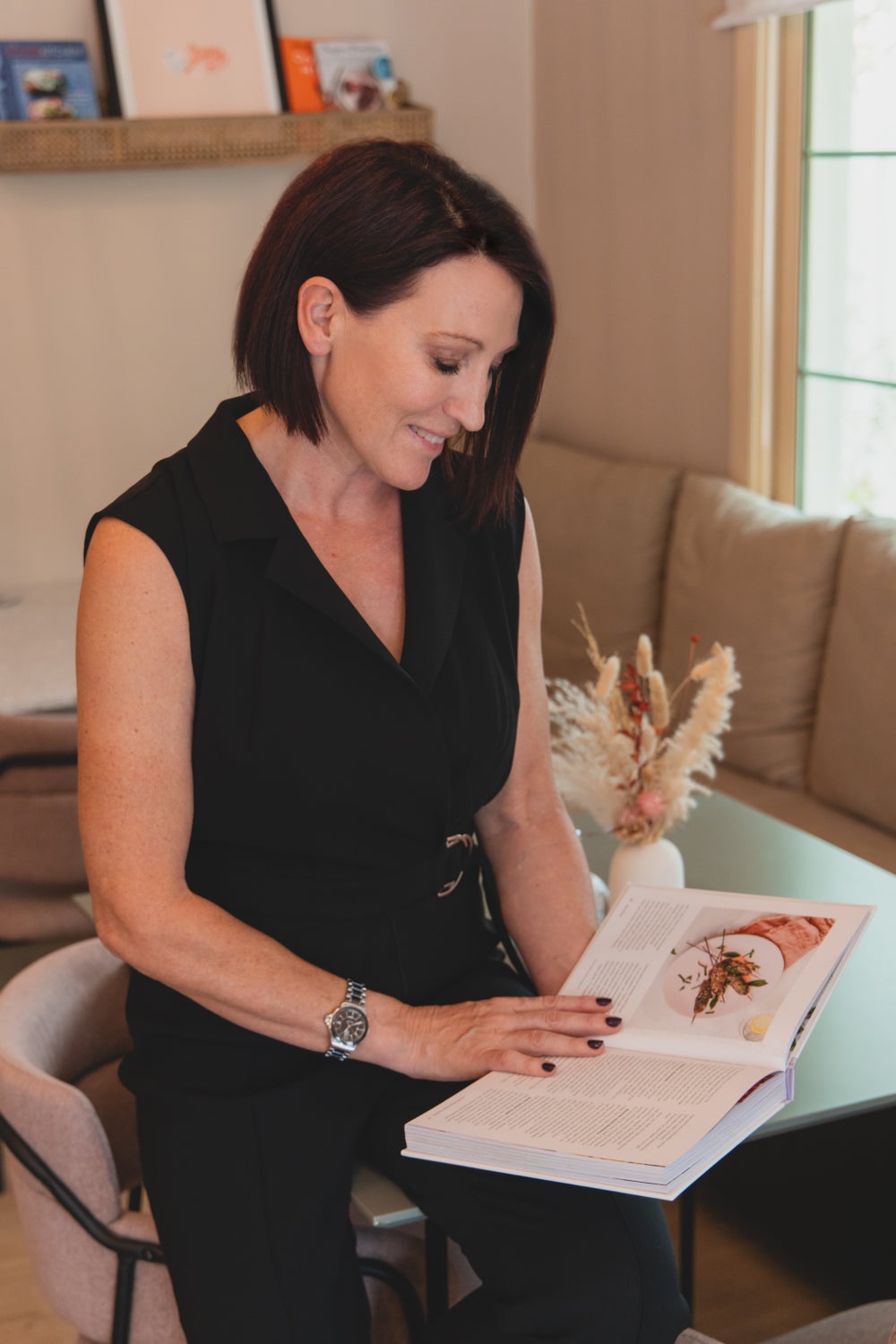 Sharon James is a mind and body coach, and the founder of Sharon James Coaching, who has spent over 30 years successfully helping hundreds of women with their weight, menopause and fitness challenges. Source: Sharon James Coaching
Sharon James is a mind and body coach, and the founder of Sharon James Coaching, who has spent over 30 years successfully helping hundreds of women with their weight, menopause and fitness challenges. Source: Sharon James Coaching
James follows this up with another timely reminder for startup founders looking to venture into the menopause treatment market. “There have been accusations of ‘meno-washing,’ with critics seeing some efforts as purely sales-driven, rather than a genuine attempt to improve health outcomes,” she says. “It’s not easy for entrepreneurs to navigate the segment, and hit the right mark. But, if they’re serious about creating change, they need an authentic approach based on in-depth understanding.”
Ob Hospitalist Group’s Dr. Kasirsky, on the other hand, reminds startup founders to be mindful of not propagating any unnecessary negative connotations through their business ideas. “In terms of ‘solutions,’ I think it’s important to acknowledge that menopause is not a disease,” Dr. Kasirsky says. “It does not need to be ‘treated.’ But there are symptoms that make a woman’s quality of life poor, and treatment of symptoms can make life better.”
So, what would be a good starting point for entrepreneurs who want to gauge a better idea of the overall menopause solutions market in the UAE? “For entrepreneurs and startups looking to carry out market research, I would suggest adding speaking to people who have been involved in the space to their top-level numbers and consumer behavior work,” replies HotFlash founder McQueen. “There are a number of narratives playing out (‘hormone therapy is essential,’ ‘natural’ is better,’ just to use the most polarized examples), and by speaking to people who’ve been around for a while, they can be aware of what is really going on. And it is essential for anyone building a product to speak to a range of women throughout the process to find out what they need, or would have needed. A few years ago it was estimated that the average woman in the US spent $2,000 per year trying to get to the bottom of her symptoms. How is that money spent? What does she know now that she wishes she knew then? What does she need now that she can’t find?”
Drawing on her coaching experience of over 30 years, James also shares strategies to help entrepreneurs ensure their solutions are effective and impactful. “For starters, gain a deep understanding of the UAE’s healthcare system, focusing on how menopause-related issues are currently addressed,” James says. “This is not easy; there is not a lot of data to go on, but it is slowly getting better. It just takes hard work and persistence. This includes knowing the regulatory environment, key players, and existing gaps in care. Consider cultural nuances in the UAE that affect perceptions and treatment of menopause. Tailor their communication and solutions to be culturally respectful and appropriate. Look for healthcare facilities, wellness centers, and women’s health clinics that align with your mission. Hospitals with specialized women’s health departments could be key collaborators.”
James also says that developing or integrating digital health tools like mobile apps, telehealth services, or wearable devices focused on menopause management could be a major focal point for startups. “These should cater to symptoms tracking, educational content, and personalized care plans,” she adds. “Explore innovative treatments and therapies that could be integrated into existing wellness programs. This might include menopause replacement therapy (MRT) and many other management tools, lifestyle intervention programs, or non-hormonal treatment alternatives.”
Drawing on her experiences as the founder of a femtech startup herself, Nabta Health’s Smith is keen to warn entrepreneurs embarking on a menopause-related venture that it may not be an easy journey. “As with everything, proper market research is crucial before diving in- qualitative research, which could take the form of focus groups, one-on-one interviews, and surveys, and quantitative research,” Smith adds. “Understanding the cultural nuances of the MENA region and the specific needs of women going through perimenopause is also essential. Designing solutions that are inclusive, affordable, and backed by medical expertise is key. This will require entrepreneurs to spend time in the region (and ideally live here) in order to build trust and foster open conversations. Remember, many women might feel apprehensive talking about menopause. Entrepreneurs should thus focus on creating a safe space for them to ask questions and get the support they need, even at the product design stage.”
For her part, Dr. Kasirsky urges entrepreneurs to also focus on the overall wellbeing of perimenopausal and menopausal women. “Everyone seems to focus on hot flashes and genitourinary symptoms, but the fact of the matter is more women will die of heart disease than any other cause of death worldwide,” she says. “So, anyone who addresses this with diet and exercise is doing a great service to women. Mental health is also overlooked. Addressing this with therapy or other activities that address depression or loneliness would also be a huge service.”
That said, from Dr. Rennie’s perspective, the solution to the problem at hand is pretty straightforward. “You know, it’s actually very easy to treat women with menopause symptoms,” Dr. Rennie says. “It’s just knowing how to manipulate the medication, what tests you need to do beforehand, what follow-ups you need to do. It’s not difficult, and it’s more about listening to people, and acknowledging what they’re going through, and helping them to find a solution.”
 Source: Shutterstock
Source: Shutterstock
Now, for any such entrepreneurial idea to take flight, it is but natural to expect some support from the investment ecosystem. But it turns out that there have been plenty of unfortunate pitstops in this space too, the first of them being the societal stigmas that are often attached to menopause. “Traditionally, menopause has been a taboo topic in many parts of the world, including the MENA region,” Smith notes. “This social stigma has led to a lack of awareness and limited public discourse about menopause, which, in turn, has resulted in low investor interest, and a lack of innovation in developing solutions specifically tailored to address the unique needs of menopausal women in the region. Femtech, a sector focused on technological solutions for women’s health concerns, has often focused on topics relating to younger demographics like fertility or period tracking. Partly because this is where the majority of investment in traditional women’s healthcare is concentrated -the global in-vitro fertilization (IVF) market, for example, is estimated to be worth $23.75 billion (as per a 2022 report by US-based global market intelligence and growth consulting company SkyQuest Technology) with a CAGR of 9.1%- but also because startup founders in femtech have historically been from a younger demographic and therefore solving for issues prior to menopause.”
Interconnected to such gender-based prejudices is the issue of a gender gap within a highly male-dominated venture capital (VC) funding landscape. For example, as per a 2023 study by the World Economic Forum, women-founded startups accounted for 2% or less of VC funding invested in Europe and the US. “Given that femtech and menopause-related startups are more likely to be founded by women who have a personal or professional interest in addressing these challenges, they face an uphill battle in securing investment,” James notes. “This funding bias limits the amount of innovation that can reach the market. The menopause market presents a significant opportunity for impactful innovation that can improve the lives of millions of women worldwide. Recognizing and addressing the barriers to entry in this market is a critical step toward unlocking its potential.”
But all of this isn’t to say that there aren’t encouraging developments in this space, McQueen reveals. “I would implore investors in the region to stop counting out older women!” she declares. “We are a force to be reckoned with. The numbers do not lie, but somehow old beliefs die hard. I remember when I was starting Hotflash Inc. to help women going through perimenopause, and speaking to a successful male entrepreneur about what I was planning. First, he asked what my demographic was. This is funny to me now, because what did he think it would be? Then he looked confused. These are the kinds of guys deciding who gets funding. They need to start getting it, and catching up, you know? If I was running a VC fund or was an investor in the region, I would make this sector a priority to fund and seek out projects, similar to the way Portfolia, a community of female investors, has done in the US. The latest round of menopause startups in the US that have been successful in series A funding rounds have been in this sector, including Evernow, a platform that offers personalized care plans and evidence-based treatments for perimenopausal and menopausal women, and Midi Heath, a virtual care platform focused on female midlife health.”
The examples shared here can certainly serve as a great template for the UAE menopause solutions market to replicate and take inspiration from. And as such, it appears that the only missing link that exists currently is a lack of entrepreneurs willing to tap into the potential the market offers- as McQueen put it: “Across the board, there are opportunities, and people are missing them.”

